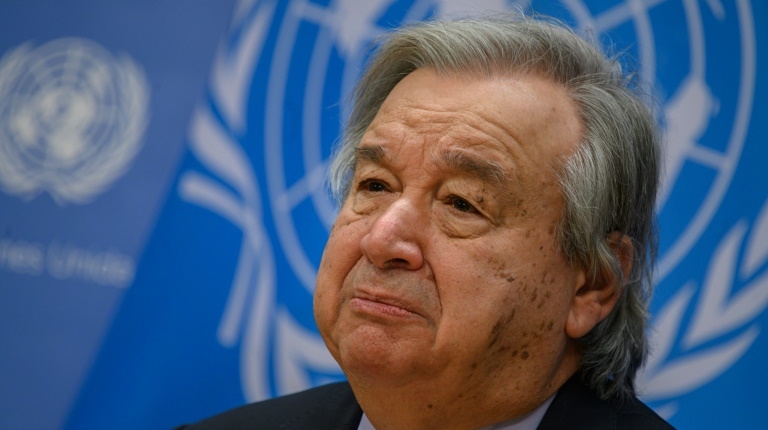The publication of the United Nations report on climate change, the synthesis report, has been delayed due to disagreements over emissions targets, carbon removal efforts, and financial aid to developing nations. While the first three sections of the report were published in 2021 and 2022, the synthesis report compiles the key findings of the previous sections. The IPCC meetings have become increasingly politicized, with the United States pushing back against taking historic responsibility for climate change, despite being the country that has released the largest amount of carbon dioxide into the atmosphere. The dispute over defining vulnerable developing countries has also contributed to the delay in publishing the report. Despite the challenges, U.N. Secretary-General Antonio Guterres remains optimistic that the 1.5-degree target limit is achievable with rapid and deep emissions reductions across all sectors of the global economy.
United Nations Climate Report Delayed Due to Infighting Over Emissions Targets and Financial Aid
The publication of a significant new United Nations report on climate change, called the synthesis report, is being held up because of disagreements over emissions targets and financial aid to developing nations. According to CTV News Canada, the report by the United Nations’ Intergovernmental Panel on Climate Change (IPCC) is meant to conclude a series that compiles extensive research on global warming gathered since the Paris climate accord was agreed upon in 2015.
The report’s fourth and final installment, the synthesis report, has been formulated by the world’s leading climate scientists, and it draws together the key findings of the preceding three main sections. These sections covered the physical science of the climate crisis, including observations and projections of global heating, the impacts of the climate crisis, how to adapt to them, and ways of reducing greenhouse gas emissions, and were published in 2021 and 2022, respectively. Notably, there is no new science in this report; it is simply a summary of the previous findings.
The report was expected to be approved on Friday by government delegations at the end of a weeklong meeting in the Swiss town of Interlaken. However, rich nations, such as China, Brazil, and Saudi Arabia, as well as the United Nations and the European Union, repeatedly extended the deadline for signing off on the report over the weekend as they argued over the wording of critical phrases in the text.
While a summary of the report was approved on Sunday, the agreement on the primary text may still have to be postponed until a later meeting due to the risk associated with the confidential nature of the talks, according to three sources close to the talks who spoke to the Associated Press on condition of anonymity.
One of the most controversial issues was how to identify vulnerable developing countries that would be eligible for cash from a ‘loss and damage’ fund agreed upon at the last U.N. climate talks in Egypt. The significant conflict between wealthy and developing countries over emissions targets and financial aid to vulnerable nations has led to the delay of the report’s publication.
Delays in United Nations Climate Report Due to Battle Over Emissions Targets and Carbon Removal Efforts
The United Nations report on climate change, the synthesis report, has been delayed due to disputes over emissions targets, carbon removal efforts, and financial aid to developing nations. According to The Hill, delegates have been battling over figures stating how much greenhouse gas emissions need to be cut over the coming years and how to factor in artificial or natural carbon removal efforts.
The IPCC meetings have increasingly become politicized as the stakes for curbing global warming increase. The United States, the country that has released the largest amount of carbon dioxide into the atmosphere since industrialization, has pushed back strongly against the notion of taking historic responsibility for climate change.
Despite average global temperatures already increasing by 1.1 Celsius since the 19th century, U.N. Secretary-General Antonio Guterres remains optimistic that the 1.5-degree target limit is achievable “with rapid and deep emissions reductions across all sectors of the global economy.”
Don’t miss interesting posts on Famousbio

